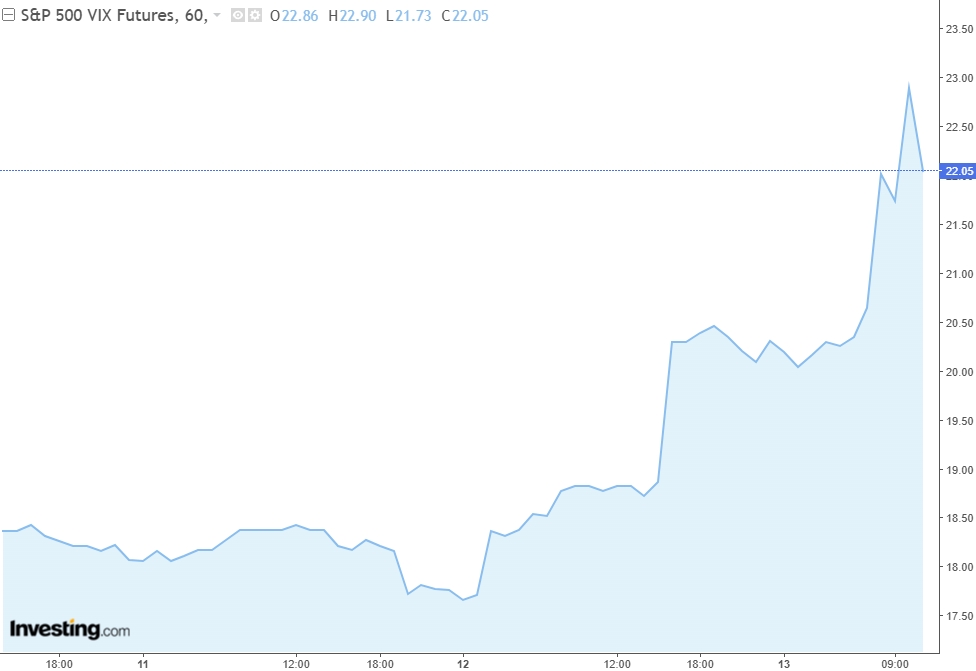Israeli Airstrikes on Iran Trigger 18% Surge in VIX Fear Gauge – Safe-Haven Dollar Fails to Rally

TradingKey - In the early hours of Thursday, June 13 (local time), Israel launched airstrikes against Iran, targeting multiple facilities in a military operation codenamed "Nation of Lions", aimed at curbing Iran's nuclear development. Iranian media reported loud explosions across several areas in Tehran, with the country’s air defense systems placed on high alert.
According to reports, commanders of Iran’s Islamic Revolutionary Guard Corps and the Chief of Staff were among those targeted in the attack.
Fears over potential disruption to Iranian crude exports sent oil prices soaring over 10%, while gold rose nearly 1.5%, breaking above $3,400 per ounce. However, the traditional safe-haven asset U.S. dollar failed to gain significant traction.
By the time of writing:
- WTI crude oil surged 9.32% to $74.37 per barrel
- Gold gained 1.18% to $2,426.84 per ounce
The VIX volatility index futures jumped 17.63%, currently at 22.05, signaling rising market anxiety. Meanwhile, S&P 500 futures fell nearly 2%.

VIX Volatility Index Surges, Source: Investing.com
However, the U.S. dollar index (DXY) rose only modestly by 0.34%, settling at 98.23.
The U.S. stated that it did not participate in Israel’s military action against Iran.
Analysts from National Australia Bank noted that the U.S. appears to be stepping back from its geopolitical dominance, opening the door for other nations to pursue their own agendas.
Experts pointed out that geopolitical tensions are becoming an increasingly disruptive force, further heightening uncertainty. While safe-haven assets rally, the U.S. dollar may not.
Recent weak economic data has also limited the dollar’s upside. Following the CPI report, Thursday’s May PPI data showed no strong rebound in inflation, and rising initial jobless claims indicated a cooling labor market.
These developments have led traders to increase bets on two Fed rate cuts in 2025, reducing the appeal of dollar-denominated assets.
Markets are now closely watching how Iran will respond. Analysts suggest that the key factor going forward is whether the situation remains contained — as history shows, markets tend to downplay the impact if escalation remains limited.







